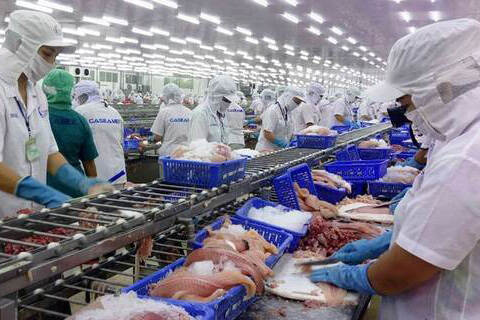Thai and Dutch Experts Highlight The Importance of Biosecurity in Feed Value Chain
The animal feed & livestock experts from Thailand and The Netherlands are joining hands to highlight the importance of biosecurity in animal feed value chain especially the impact on human food value chain safety and security as the consequence.
Johan den Hartog (GMP Plus International) : Internationally, Dutch livestock farming is at the forefront of reducing medication with antibiotics. In 2011, at the request of the Dutch feed sector and livestock farming, GMP Plus International introduced the GMP Plus NL Country Note for the production of antibiotic-free feed. The animal feed sector anywhere in the world can make its contribution by taking responsibility and responding to changes in a timely manner. Change is sometimes a threat, but also offers opportunities for innovative on sustainable growth and continuity.
Dr. Victor Volkers (Q-Point B.V.) : Biosecurity in feed value chain is the contingency plan with integrated approach of risk management. Biosecurity Improvement or Threat Reduction is a shared responsibility by all the stakeholders in animal feed value chain or between government and private sector.
Dr. Nitipong Homwong (Kasetsart University) : The impact of bio-threat on animal feed value chain is not only decreasing on farm productivity and profitability but also safety for feed and food (food-born disease, zoonotic disease) and protein source security.
Mr. Tipong Narkmit (GMP Plus Auditor) : Feed safety is everyone' s accountability, not just responsibility of a particular person. Knowing yours relation in feed chains, you will achieve one further step in feed supplied chain industry. Believe in quality standards, effectively apply it with your own culture management, control it smartly, and never fear changes.
Dr. Boonyita Rujtikumporn (Thai Feed Mills Association) : Thai livestock value chain has been directed by at least 4 Acts under Thai Ministry of Agriculture and Cooperatives; Animal Feed Quality Control Act, Agricultural Standards Act, Slaughterhouse Control Act and Animal Epidemic Act. Thailand’s National Strategic Plan on Antimicrobial Resistance 2017 – 2012 promotes “Raised Without Antibiotics” under strong collaboration between Thai government and private sector in livestock industry by antimicrobial use monitoring and searching for innovative feed additive to enhance animal gut health and immunity.
Ms. Kobkan Prasomsak (CPF (Thailand) Public Co., Ltd. : Apart from new market expanding and enhancing business competitiveness, GMP Plus FSA certification helps building trust among the stakeholders in feed value chain. Interpretation of terms and implementation, collaboration between feed mill and suppliers and insufficient of GMP Plus Auditor are the main challenges of GMP Plus FSA certification in Thailand.
The two days webinar (15th & 22nd July) is supported by the Dutch Government under NUFFIC OKP TMT Program for Thailand executed by GMP Plus International, Q-Point BV and Thai Feed Mill Association. The webinar focusses on 1. Security Feed Safety Certification: Relevance & Reliability” and 2. Importance of Biosecurity to Feed Value Chain in Thailand. Over hundred of stakeholders from Thai animal feed value chain have attended.
For more information : https://www.gotostage.com/channel/gmpplusinternational
